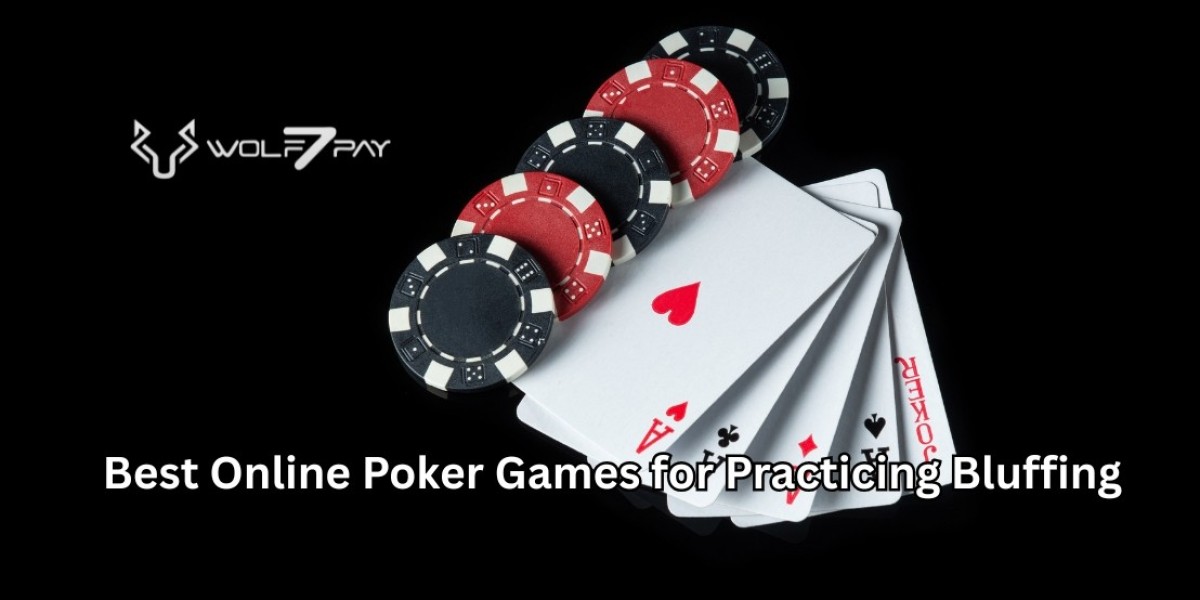Online poker is not just a game of luck—it’s a mind sport where strategy, timing, and mental resilience come into play. Among the many elements that define a successful poker player, bluffing and tactical maneuvering stand out as critical skills. Whether you're a beginner trying to understand the art of deception or a seasoned player looking to refine your strategies, online poker offers the perfect practice ground. The virtual environment gives players the space to try new techniques, observe various playing styles, and build a mental library of opponent behaviors without the pressure of a live poker table.
Why Bluffing is a Key Component in Poker
Bluffing involves convincing your opponents that your hand is stronger or weaker than it actually is. It’s a psychological play, aimed at forcing others to fold even when they may have better cards. Mastering the art of bluffing requires understanding player tendencies, reading betting patterns, and using timing to your advantage. Online poker provides numerous opportunities to practice this in real-time, with minimal stakes and a wide variety of opponents.
There are several types of bluffs—semi-bluffs, continuation bets, and stone-cold bluffs. Each serves a different purpose depending on your hand and the community cards. Practicing these techniques in online games allows players to gauge effectiveness, track results, and refine their approach without the social pressure of in-person games.
Tactical Play: More Than Just Cards
Tactics in poker go beyond bluffing. Tactical play involves making calculated decisions about when to call, raise, fold, or check based on the flow of the game, your opponent’s moves, and the cards on the table. Learning to play tactically means being aware of pot odds, table position, stack sizes, and opponent psychology. Online poker platforms offer customizable tables, hand histories, and stat trackers—features that help players study and improve their tactics over time.
Multitabling, for example, is a tactical skill in itself. It allows players to handle multiple games simultaneously, thus increasing exposure to different hands and styles in a short time. The faster gameplay in online poker also ensures that you get to practice more hands per hour compared to live games.
Game Variants Ideal for Bluffing Practice
Not all poker games are equal when it comes to bluffing opportunities. Some formats inherently allow for more deception and mental warfare. Here are a few ideal variants to explore:
No-Limit Texas Hold’em: This is the most bluff-friendly format. With unrestricted betting, players can use their stack to apply pressure, making it ideal for practicing continuation bets and river bluffs.
Pot-Limit Omaha: Although the hand values are generally stronger in Omaha, the complexity of possible hands makes it an excellent format for tactical decisions and selective bluffing.
Heads-Up Poker: One-on-one play is a perfect scenario to refine bluffing skills. With only one opponent, your chances of bluffing successfully increase, and you can focus entirely on reading a single opponent’s habits.
Sit & Go Tournaments: These fast-paced tournaments test your ability to adapt. Bluffing becomes more tactical as blinds increase, and stack sizes shift frequently.
Zoom or Fast-Fold Poker: Because players move to a new hand immediately after folding, you face new opponents constantly, which challenges your ability to read patterns and adjust bluffs accordingly.
In the midst of these game modes, it’s vital to note that the Best Online Poker Games are the ones that offer varied player pools, detailed analytics, and options to replay hands. These features enhance both bluffing practice and overall tactical growth.
Using Tools to Sharpen Your Strategy
One of the significant advantages of online poker is access to data. Replaying past hands, tracking statistics, and studying opponent trends all contribute to a better understanding of when and how to bluff effectively. Many players use HUDs (Heads-Up Displays) or review software to monitor fold percentages, aggression frequency, and other valuable metrics.
For tactical improvement, watching professional streams or tutorials can also give players insight into how top-tier players think and act. These resources often break down key hands, allowing learners to observe bluffing situations and strategic decisions in detail.
The Role of Psychological Play
Even in a virtual environment, psychological elements remain strong. Observing timing tells—such as how quickly someone makes a decision—or patterns in bet sizing can help you gauge whether an opponent is bluffing or holding a strong hand. Successful bluffers often use consistent sizing to mask their intentions or intentionally vary their behavior to confuse opponents.
Online poker may remove the visual cues found in live games, but it replaces them with digital habits. Identifying these and using them to your advantage is part of mastering the game tactically.
Building Confidence through Practice
The key to becoming a formidable bluffing player is repeated exposure and intentional practice. Start with low-stakes games to test strategies without significant risk. Use freeroll tournaments to experiment with high-pressure bluffs and see how players react. The more hands you play, the more situations you encounter, and the better equipped you become to make decisions under pressure.
Over time, your confidence will grow—not because you win every hand, but because you’ll start understanding why certain bluffs succeed and others don’t. You’ll be able to adjust your strategy in real-time, which is the hallmark of a skilled poker tactician.
Conclusion
Practicing bluffing and refining poker tactics are essential to elevating your game. Online poker provides a dynamic environment where these skills can be tested, tweaked, and improved. Through thoughtful practice, strategic analysis, and exposure to a variety of formats, players can transform their gameplay from reactive to proactive. Bluffing isn’t just about lying with your cards—it’s about understanding the game deeply enough to make others believe in your story. And that’s a skill worth perfecting.






